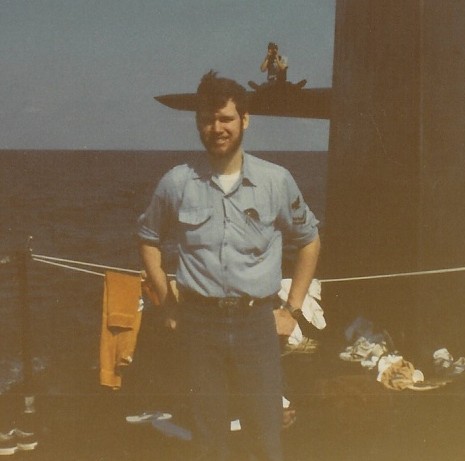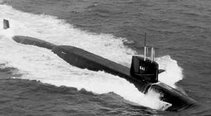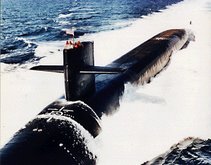Iran’s recent naval exercises in the Strait of Hormuz was, if not a public relations stunt for the hometown crowd, then a demonstration (however lame) of their ability to disrupt shipping in the Persian Gulf. In as much as this was a clear threat to use “Oil as a Weapon” against the west and an example of more Middle Eastern bravado. The backdrop to all this show of force is the showdown over Iran’s nuclear ambitions.
A country that is the world’s forth largest exporter of oil needing nuclear power with all its development costs and waste disposal issues would be laughable if not for the suspected real intention. Iran has no other purpose in developing a nuclear power program and to enrich uranium than to push itself closer to developing nuclear weapons grade materials. Those who don’t believe that Iran’s nuclear power program is a façade put forward on the road to nuclear weapons need only look to the history of similar state programs in Iraq and North Korea. If the current Iranian President Mahmoud Ahmadinejad and the ruling mullah theocracy get what its wants, that accomplishment could be a disaster waiting to happen. And waiting out the Americans is what they intend:
Ahamdinejad will pursue his provocations. On Monday, he was as candid as ever: "To those who are angry with us, we have one thing to say: be angry until you die of anger!"
His adviser, Hassan Abassi, is rather more eloquent. "The Americans are impatient," he says, "at the first sight of a setback, they run away. We, however, know how to be patient. We have been weaving carpets for thousands of years.
The use of oil as a weapon by either Iran with production shutdown and aggressive actions against tanker traffic or the UN through sanctions and embargo will create shortages and resulting higher prices in the short term. But the world economy is dynamic and as the price point per million BTU of energy rises other technologies are likely to fill the gap.
Over the long term the use of oil as a political weapon will become less and less effective and Middle Eastern countries like Iran may learn a new concept “disruptive technology”. Indeed, disruptive technologies to oil production may be right around the corner.
One example of a technology that has a disruptive potential comes from Professor Alan Goldman and his team Rutgers University “Coal-to-Diesel Breakthrough Could Cut Oil Imports”. Professor Goldman team's breakthrough technology employs a pair of catalytic chemical reactions that operate in tandem, one of which captured the 2005 Nobel Prize in Chemistry. This dynamic chemical duo revamps the Fischer-Tropsch (FT) process for generating synthetic diesel fuel from coal to new levels of efficiency. How is this significant?
According to the U.S. Department of Energy, our 286 billion tons of coal in the ground translate into energy reserves 40 times those of oil. Diesel engines provide the power to move 94 percent of all freight in the U.S. and 95 percent of all transit buses and heavy construction machinery, consuming approximately 56 billion gallons of diesel fuel per year.
Another disruptive technology could be the effective tapping of an entirely new and unused carbon fuel source, methane hydrates. From a reprint of the UK Guardian article with the usual global warming spin:
Ray Boswell, who heads the hydrate programme at the US department of energy's national energy technology laboratory, said the US was determined to be the first to mine the resource."Commercially viable production is definitely realistic within a decade. The world is investing in hydrates, and one reason for us to do this is to maintain our leadership position in this emerging technology."
Scientists believe that the vast methane hydrate deposits scattered under the world's seabed and Arctic permafrost are greater than in all of the known reserves of coal, oil and gas put together.
Yet another potential technology is using a Thermal Conversion Process or TCP to convert agricultural wastes into oil by mimicking the earth’s natural geothermal process. The company Changing World Technologies, Inc. (CWT) founded in August 1997 is a pioneer in TCP research. From the CWT website:
Agricultural wastes alone make up approximately 50% of the total yearly waste generation (6 billion tons) in the U.S. With the TCP, the 6 billion tons of agricultural waste could be effectively converted into 4 billion barrels of oil. Realizing this incremental domestic energy production is clearly in our national interest, because it ensures greater national energy independence. At the same time, this production provides a permanent solution to serious environmental problems caused by current waste disposal practices.
As world oil prices exceed $70 dollars a barrel new technologies as well as new investment in oil exploration may reduce or even eliminate any long term economic blackmail that the mad mullahs of Iran may feel they have.
I’m hoping that one if not all these technologies mature and become economically viable, after all Iran without its oil revenue or the potential of nuclear weapons would be nothing more than a land of patient rug producers.
Tuesday, April 18, 2006
Subscribe to:
Post Comments (Atom)









1 comment:
Though I'm admittedly a former Chemistry major (read "geek"), these are fascinating developments no matter how you slice it--thanks!
Post a Comment